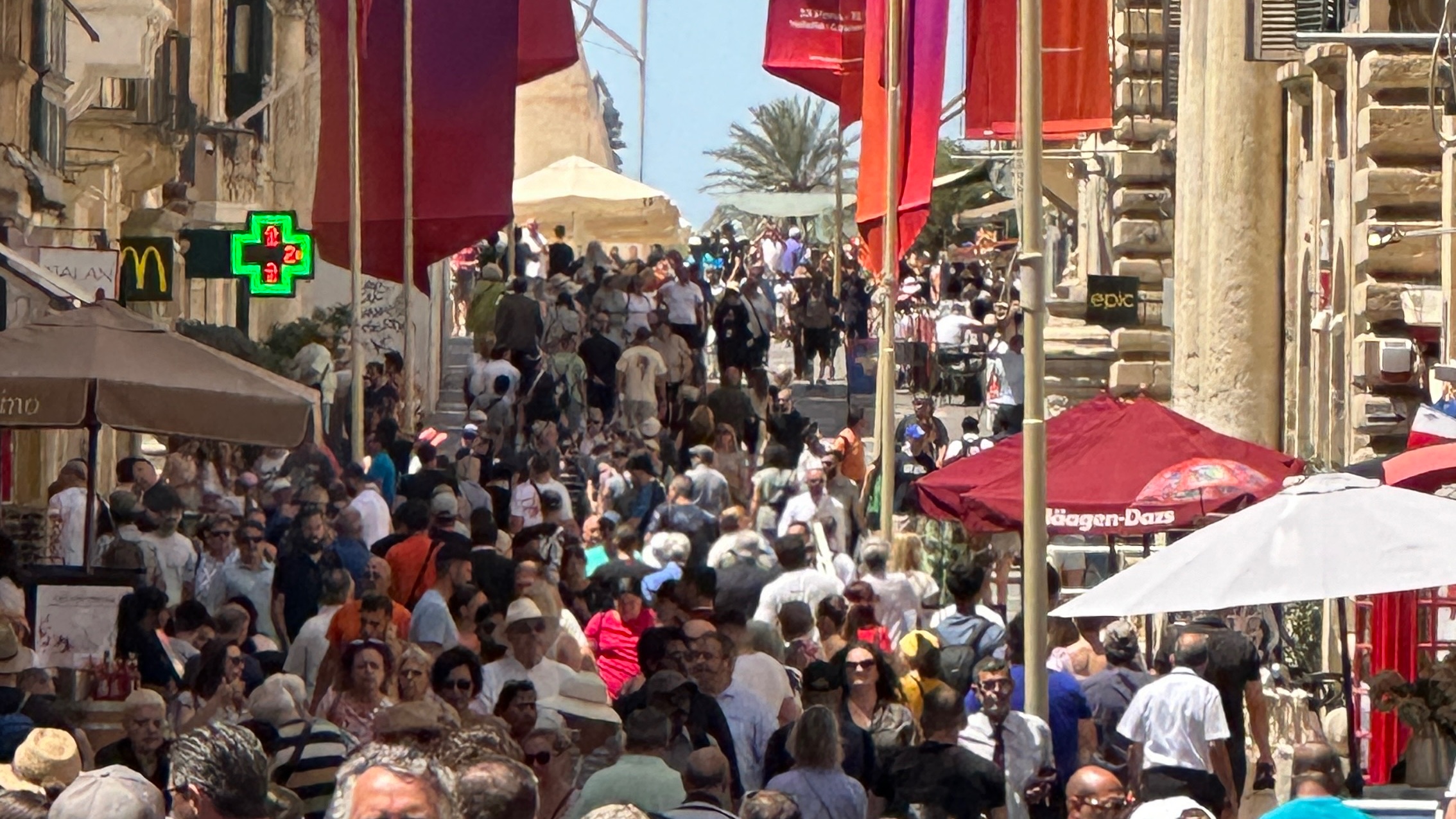After checking into the hotel on May 28, I had a good sleep.
On the morning of May 29, standing on the balcony, the beautiful scenery in front of me captivated me. The morning light in the distance, the fiery red horizon. The sea in St. Julian's Bay nearby was so blue and calm.
I shot a video and posted it with music on WeChat Moments, and soon friends back home were liking it, agreeing that the mornings in Malta were beautiful.
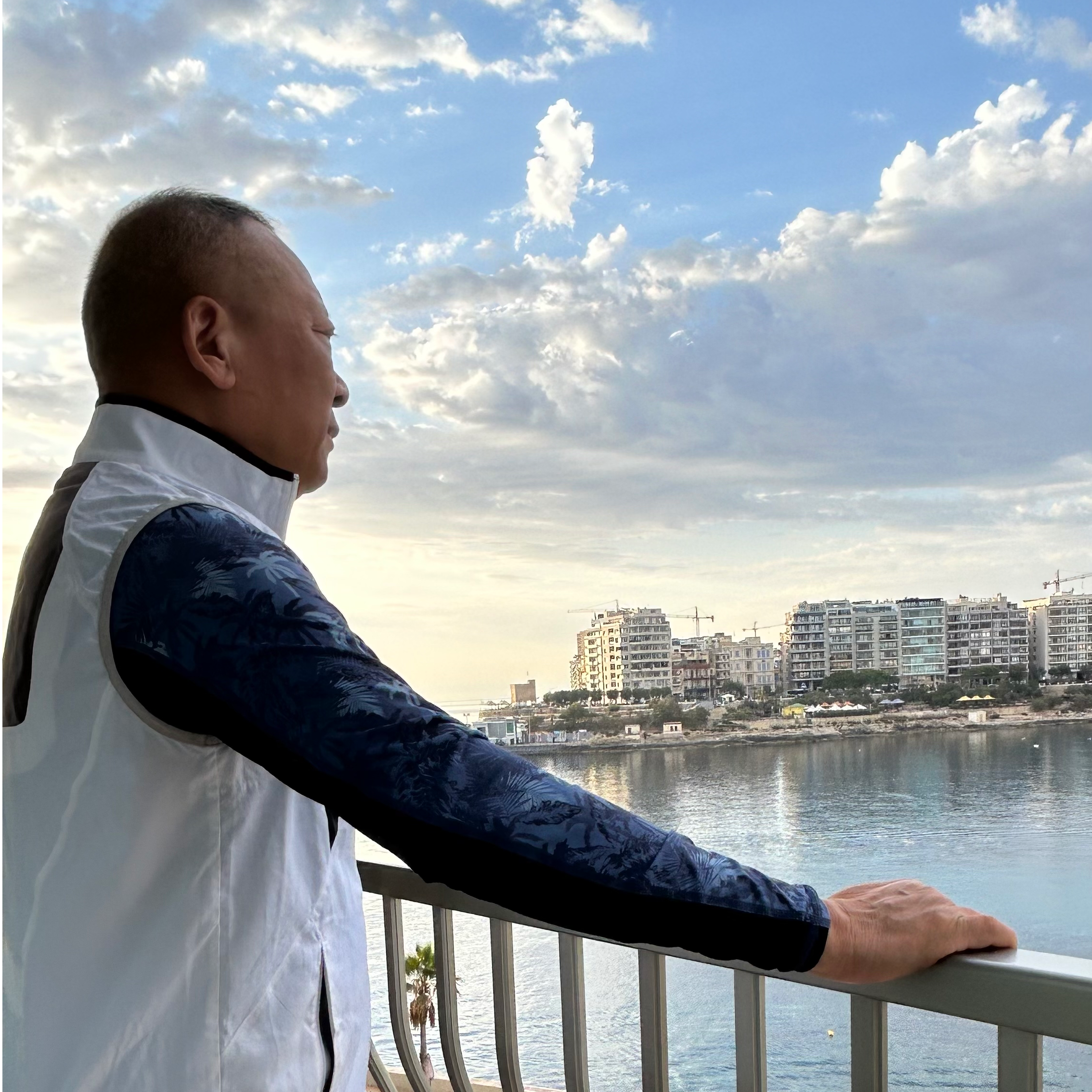
There is a six-hour time difference between here and China. Six o'clock in the morning in Malta is noon in Beijing.
In the hotel's large restaurant on the first floor, there was a sumptuous exotic-style buffet breakfast, and we enjoyed a wonderful meal.
At nine o'clock in the morning, we gathered at the hotel entrance to officially kick off our in-depth tour of Malta.
The itinerary for the first day on May 29: Valletta - The Three Cities (9:00-17:00).
Morning: Tour of the capital Valletta, including the Fountain of the Sons of Neptune, Old Mint Street, St. John's Co-Cathedral, and Barracca Gardens.
Afternoon: Visit the historical cradle of Malta, the Three Cities, consisting of Vittoriosa, Senglea, and Cospicua, arranged in a triangular shape.
The Three Cities were also the earliest "home" of the Knights of St. John in Malta, witnessing the famous Great Siege of Malta. As the initial settlement of the Knights, the palaces, churches, fortresses, and bastions in the Three Cities are much older than those in Valletta.
Sightseeing: Inquisitor's Palace, Fort St. Angelo.
The local guide arranged by the Beijing travel agency for us is a long-established Chinese tour guide.
She praised us enthusiastically when she saw our itinerary in Malta. She said that Chinese tourists rarely travel in Malta like we do.
Chinese visitors to Malta generally fall into two categories: one is those who disembark from cruise ships for a day and then leave, or those who pass through from Spain or other countries and stay for at most two days. People like you, who have specially customized a four-night stay and five-day tour, are almost non-existent.
The distance from the hotel to the capital Valletta is very short; it takes us about 30 minutes by car.
As the tour bus traveled through the city, I saw many shops along the roadside and yachts docked in the bay.
Valletta is the capital of Malta and is also known as the city of fortresses.
After getting off the tour bus, we began to enter the ancient city of Valletta, and I was impressed by how many European and American guests there were. Whether they were independent travelers or part of tour groups, there were particularly many, with many tour buses parked here, and many guests walking towards the ancient city under the guidance of their tour guides.
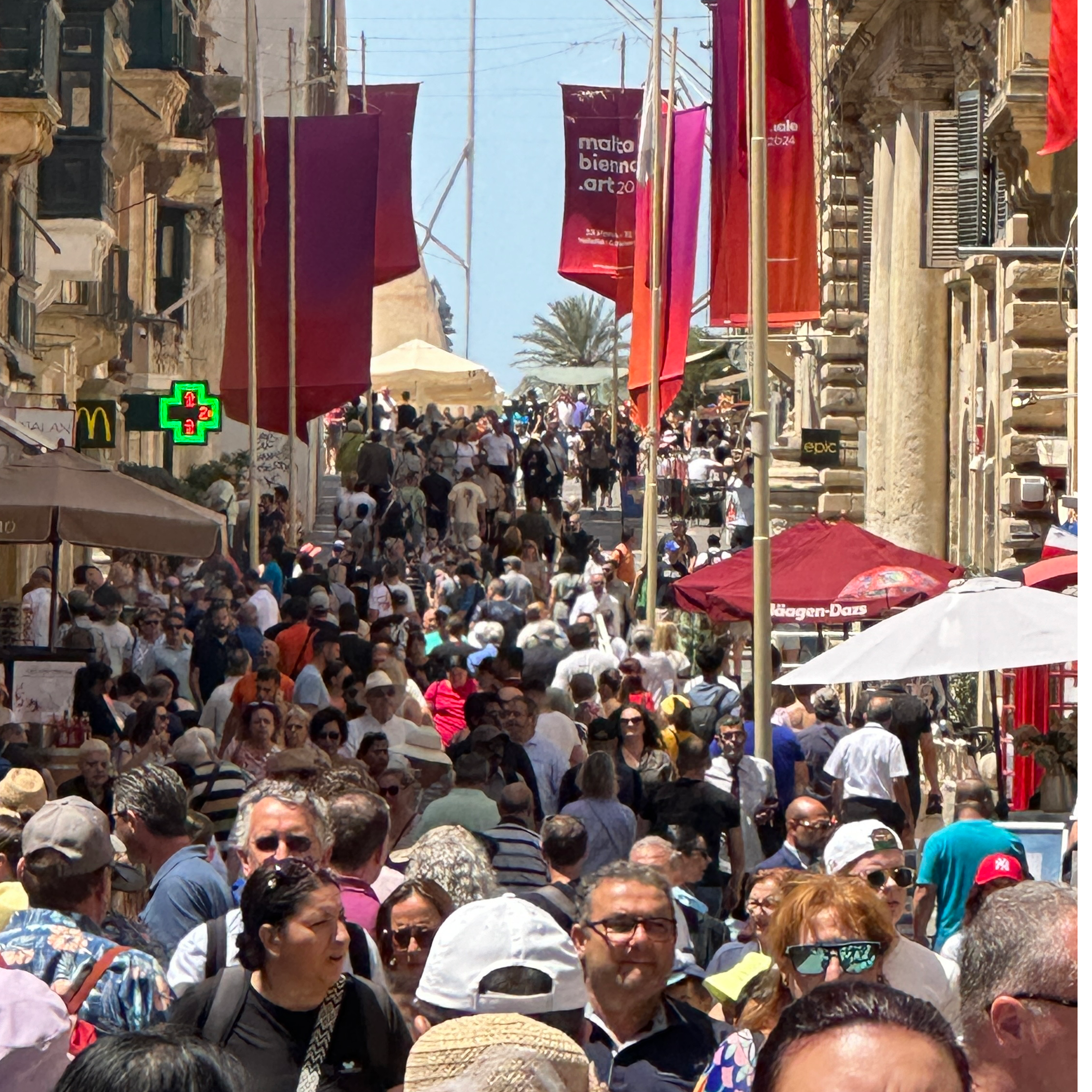
It felt as if all the tourists visiting Malta were converging here.
The local guide we hired is a middle-aged woman from Guangdong who has lived in Malta for 30 years. She is very experienced, and apart from her strong Cantonese accent, she has no other flaws. She will accompany us for all our travel arrangements over the next five days and four nights.
The ancient city of Valletta is very small; it is only about 1 kilometer from one end to the other, but there are many places to visit, making it suitable for a leisurely stroll.
After entering the ancient city, she first briefly introduced the situation of the ancient city and the meeting point, then led us straight to the most important attraction, St. John's Co-Cathedral.
St. John's Co-Cathedral is located in Valletta. If you are someone who enjoys visiting religious buildings and appreciates art and painting, you must not miss it. This former convent church of the Knights of St. John was completed in 1578 and was later renovated by several Baroque artists, making the cathedral one of the exemplars of high Baroque architecture in Europe.
The most well-known work here is Caravaggio's "The Beheading of Saint John," which is not only Caravaggio's only signed work but also an outstanding representative of Baroque painting.
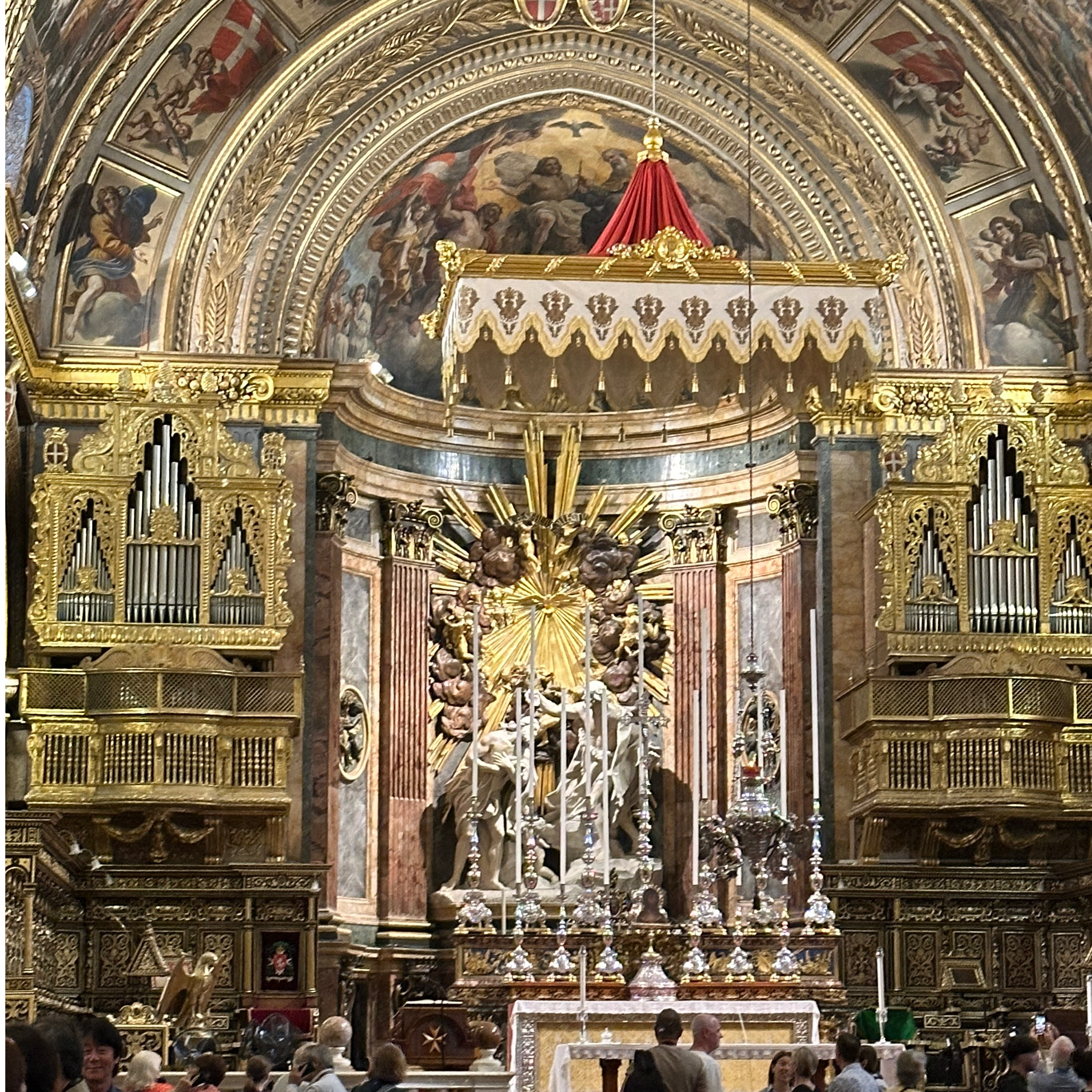
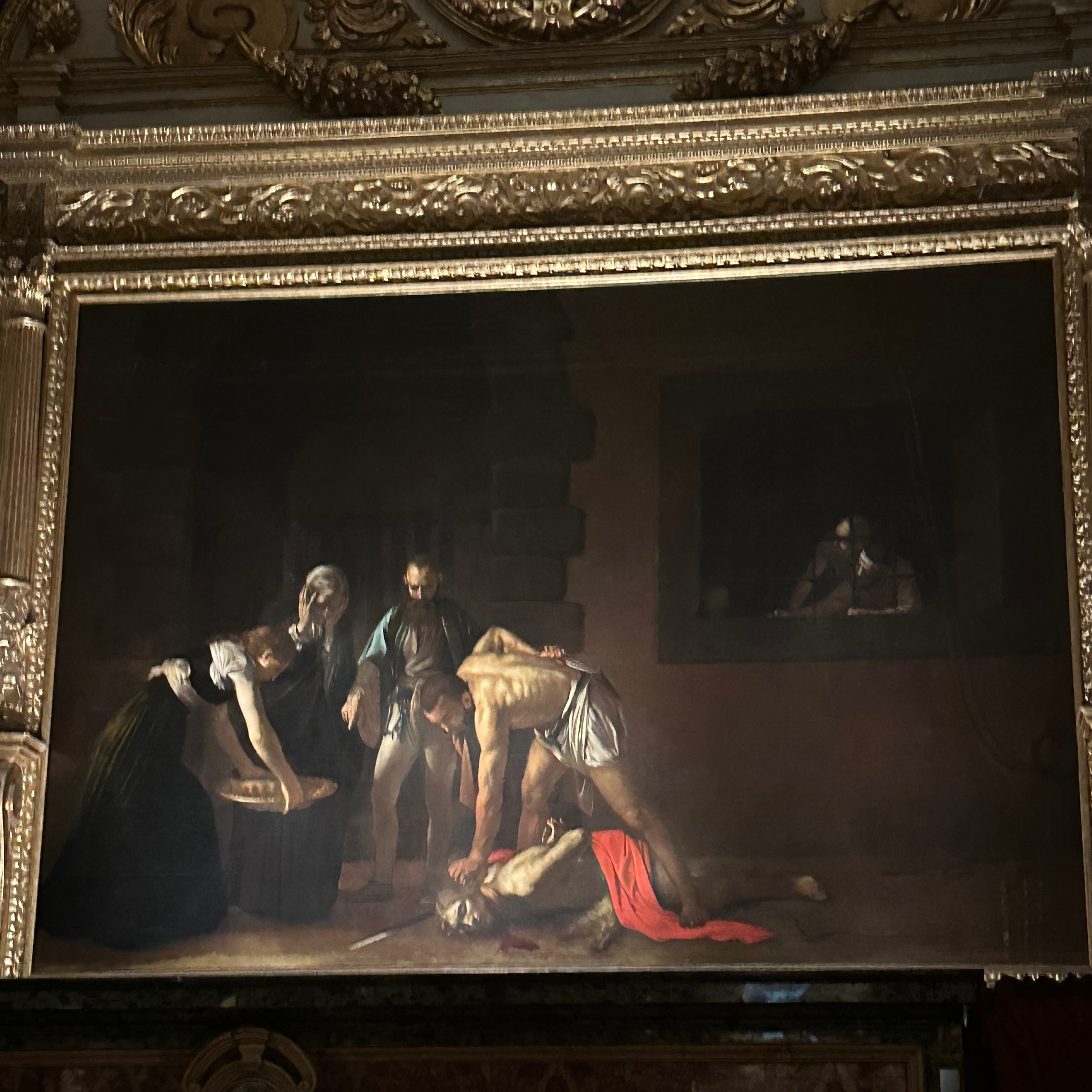
Inside the church, we were fortunate to meet the president of the Malta Tourism Union. Under the guide's introduction, he was very happy to hear that we came from Beijing, China, and extended a special welcome to the more than twenty tourists from Beijing visiting Malta.
He also had a brief conversation with me and took a photo together.
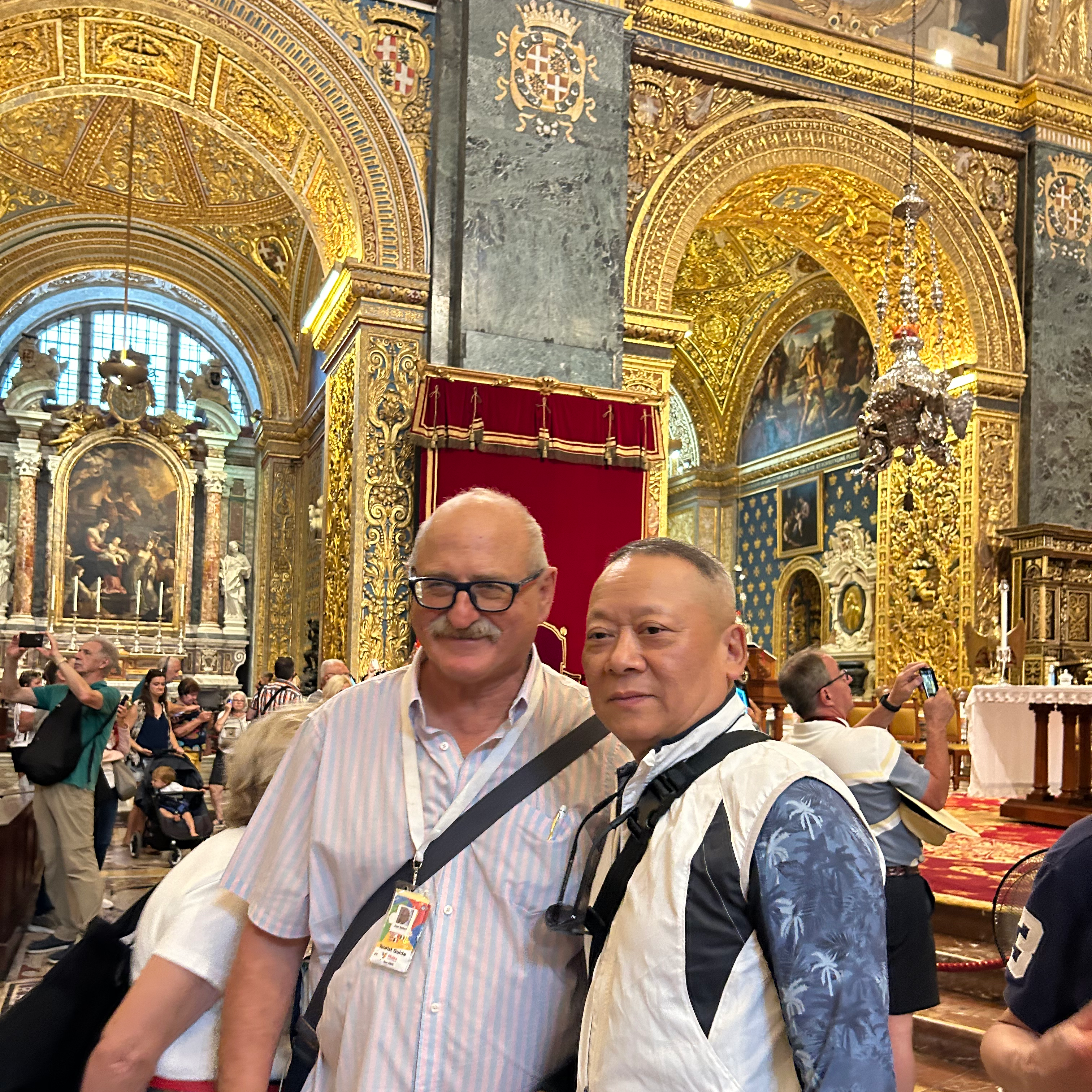
After leaving the church, we continued our tour.
Republic Square is set against the backdrop of the statue of Queen Victoria and the National Library of Malta. The square was originally called the Knights' Square, but later in the 19th century, the statue of Queen Victoria was placed in the square. Although its official name is Republic Square, people usually refer to it as Queen's Square or Regina Square.
We then went to the highest garden in the capital.
Upper Barracca Gardens is a favorite place for tourists and locals to relax and unwind. It is located next to the Castille Palace, surrounded by fountains, trees, flowers, and statues, and connected to terraces and large viewing platforms.
The garden is situated on a high hillside, and photos taken with the circular building in the background against the seaside dock look particularly beautiful. There are also ancient cannons in the ancient city, with dark iron cannons facing the sea, guarding the ancient city.
We specifically went there to take photos.
In the ancient city, there is a popular check-in spot, a café that has been in operation for 187 years, Cordina.
This exquisite century-old café is located on the streets of Valletta's central area, and their sheep cheese pastries are particularly delicious. Since it is a popular spot, we had to check in. I went in and shot a video, and everyone in our group bought and tried their sheep cheese pastries.
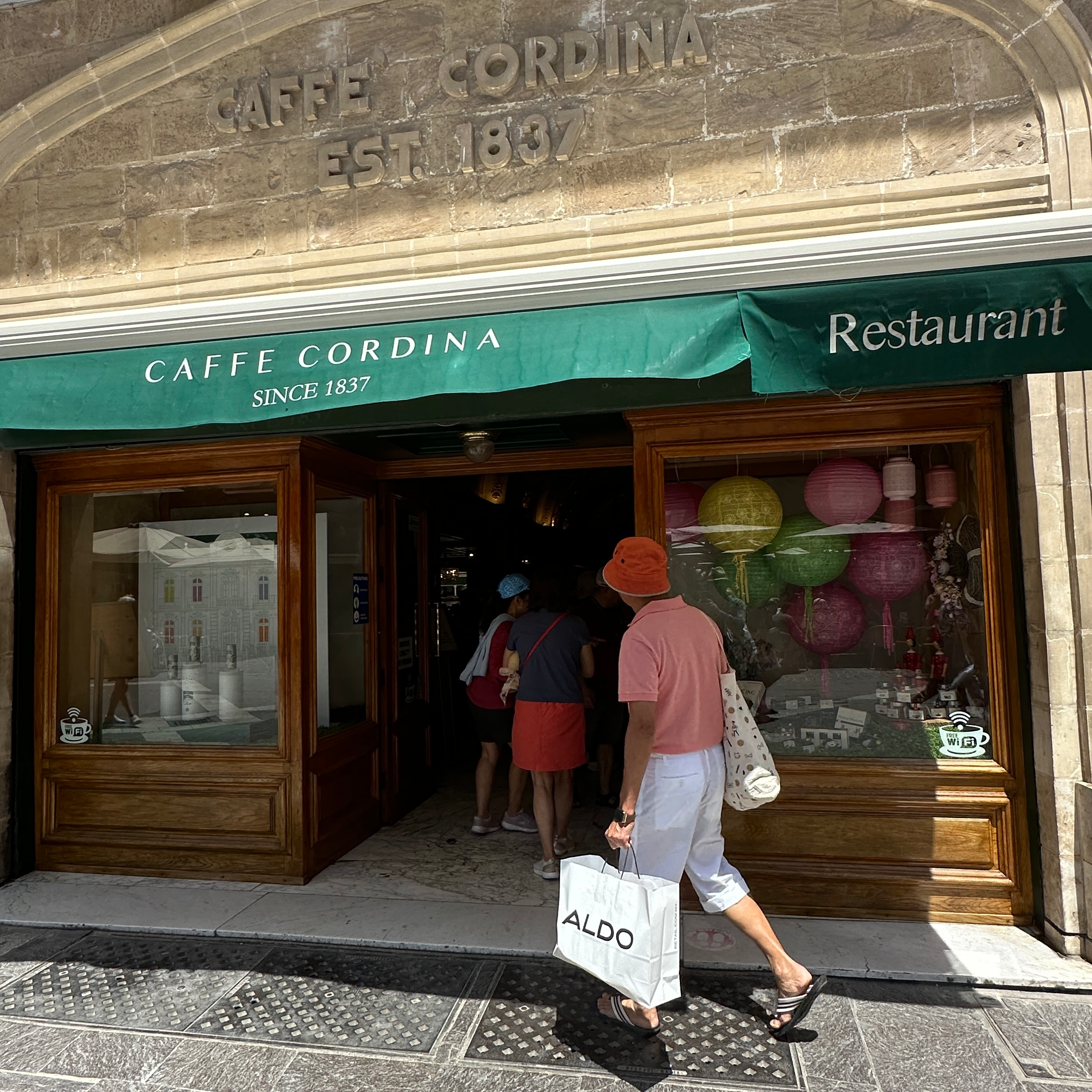
The indoor area of this café is not large, making it feel crowded, but there are many outdoor seats in the square at the entrance, mainly for customers to buy inside and eat outside.
The streets of the ancient city are very distinctive.
Old Mint Street
is a classic street in Valletta, Malta's capital, where you can capture the undulating street scenes alongside St. Paul's Church.
The streets of the ancient city are particularly interesting, with uphill and downhill roads leading to the seaside on both sides of the main road, making for very atmospheric photos.
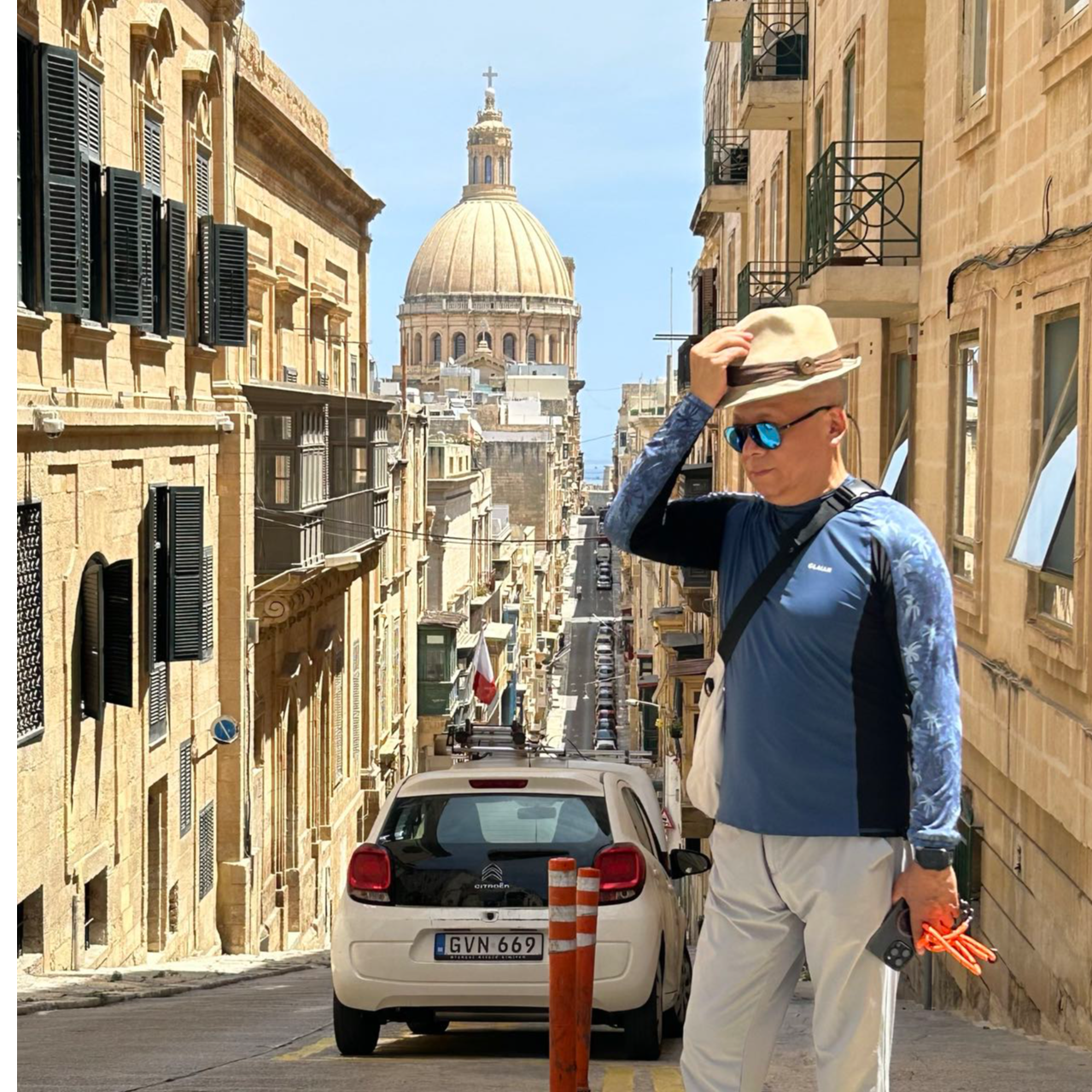
The ancient city of Valletta, the capital of Malta, is a World Heritage Site.
My impression from browsing here in the morning is that it doesn't feel like the capital of a country, as there are no high-rise buildings or modern architecture; the main traffic thoroughfares are all pedestrian streets. To be honest, it feels more like a tourist resort city.
Here, you rarely see local residents; most are foreign tourists visiting and the shops along the street.
As an island nation in the Mediterranean, its capital, like this ancient city, is simple and unadorned, which I did not expect.
Our morning tour in Malta on the first day brought us a lot of gains, and the capital Valletta left a deep impression on us guests from Beijing.
I think this is a good start, indicating that we will definitely gain more and have more fun in Malta over the next few days.
(To be continued)
